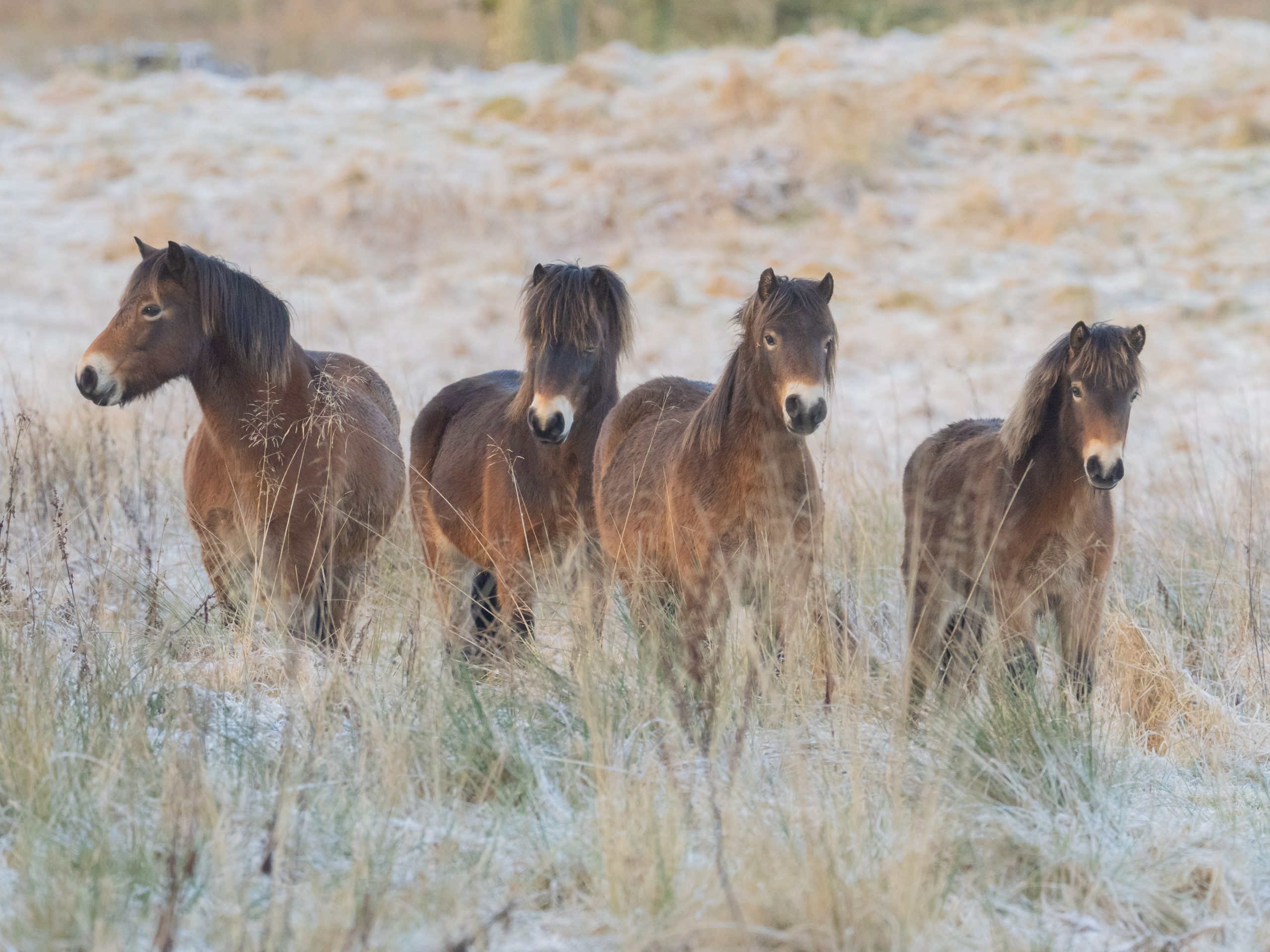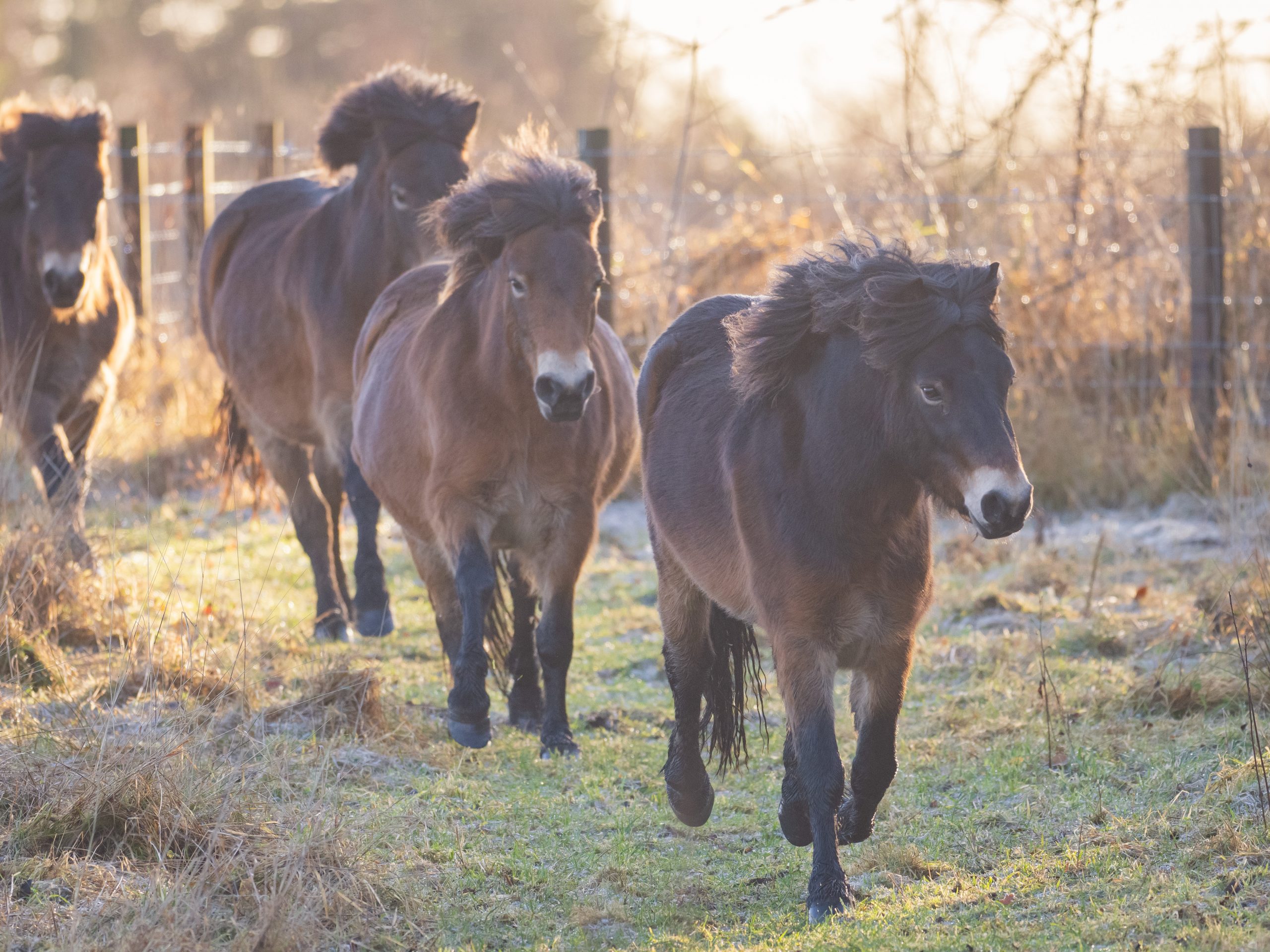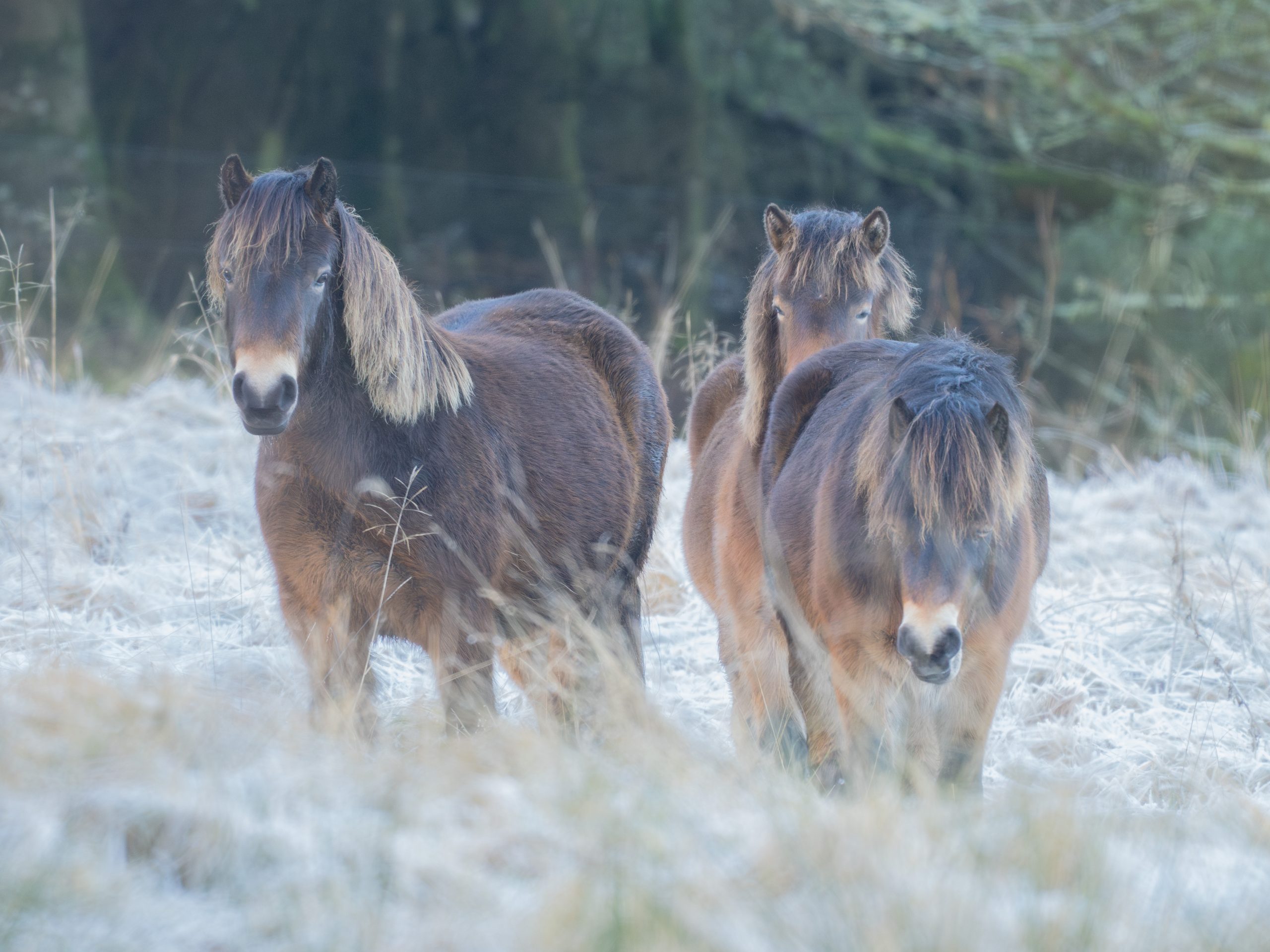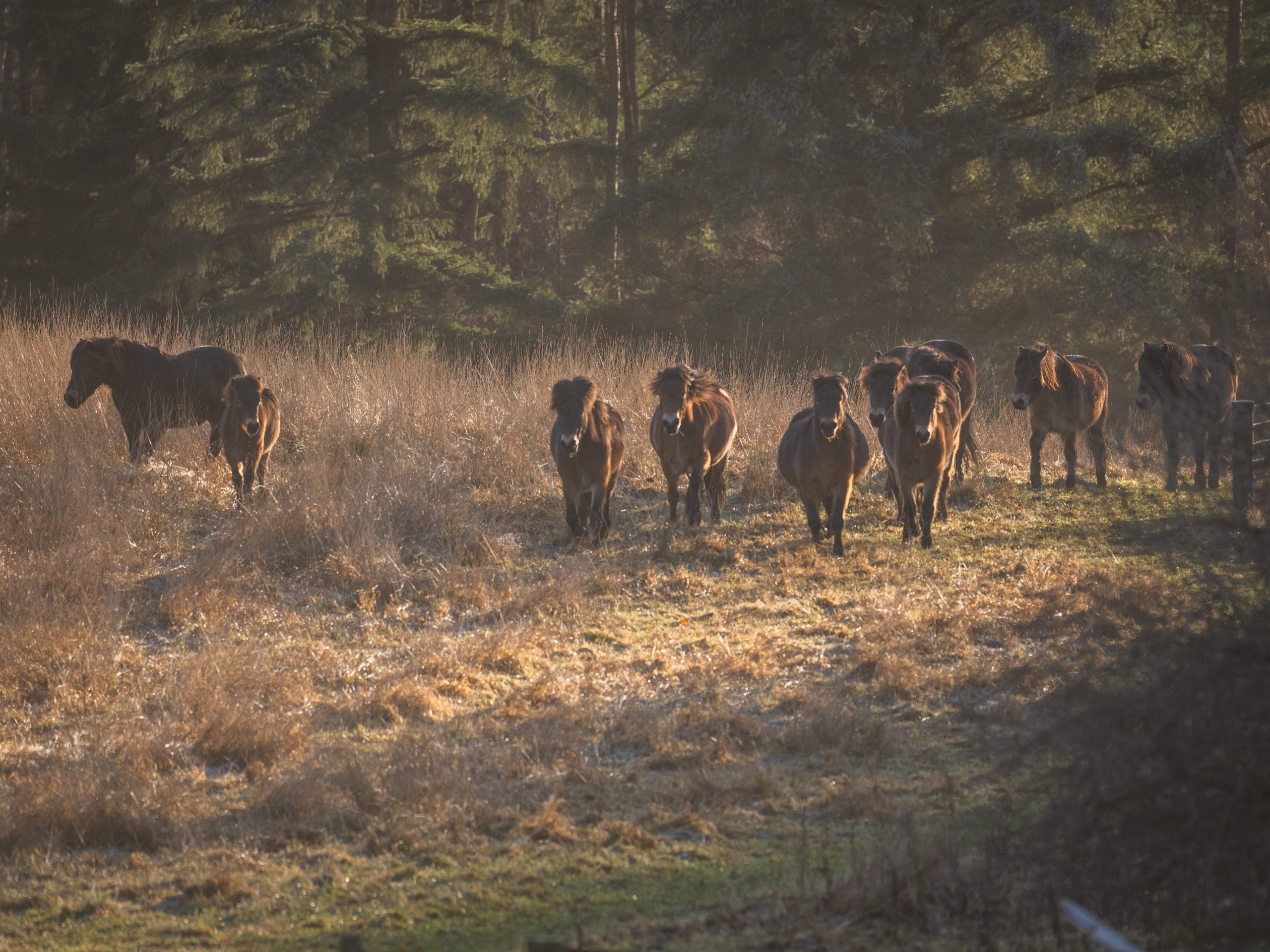A sub-herd of 11 Exmoor ponies have arrived at their new home at Bamff Wildland where they will live and breed in the wild. The ponies, owned by longtime Exmoor researcher Debbie Davy, who also has a larger herd in the Scoraig peninsula which these are mostly derived from, were previously living at Cochno Farm, which is affiliated with the University of Glasgow. There the ponies were being studied as part of Debbie’s PhD on the genetic and rewilding aspects of Exmoor Ponies. The farm had new plans for the land and the ponies were forced to leave, hence their arrival at Bamff.

Exmoor ponies, according to Debbie’s and others research, are genetically the closest breed to ancient hill ponies (and thus also ancient horses). Their bloodlines are carefully manipulated in a way that resembles natural selection where the most resilient survive. And indeed, they are more resilient than other pony breeds; far less susceptible to laminitis, for example, which is often a major problem in introducing ponies to ex-farmed fields.

Their purpose at Bamff Wildland is to help to disturb the ground on ex-sheep fields in specific ways distinctly different in style to the existing pigs and cattle. They are more selective in their eating habits, being less likely to feed on tree growth or flowers and preferring rough grasses as the main component of their diet. The clearing of grasses then helps flowers then flourish without being crowded out. Their hooves marks also creating openings in the soil for seeds to take hold.

Numbers will be monitored so that they do not have too high of a population density for the Wildland. In the future some will therefore be occasionally removed and sent to other rewilding projects.
The Exmoor Pony is the closest proxy to ancient wild ponies we can possibly have to assist in the replication of ecosystems from former times.


